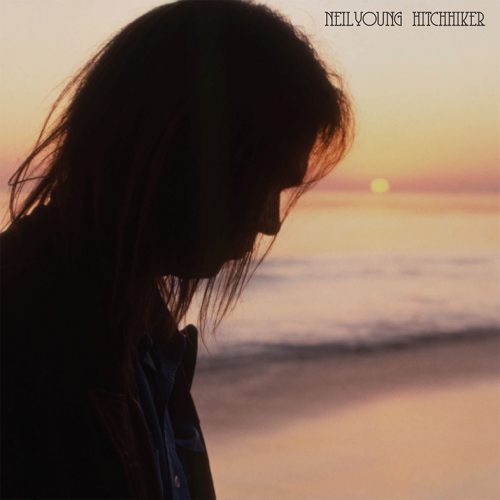It’s been a while since I did a round-up of recent and forthcoming releases, so the imminent arrival of Neil Young’s “Hitchhiker” seems as good an excuse as any this week. The full story of “Hitchhiker” and many of Neil’s other recent albums, you’ll recall, was covered in the Septemb...
It’s been a while since I did a round-up of recent and forthcoming releases, so the imminent arrival of Neil Young’s “Hitchhiker” seems as good an excuse as any this week. The full story of “Hitchhiker” and many of Neil’s other recent albums, you’ll recall, was covered in the September issue of Uncut, which is on sale in the US now
An entire eight months without a new album, and a concomitant pause in live activity, have evidently given Young some time to get back to the business of putting his archives in order. “Hitchhiker” is a focused solo acoustic set recorded on August 11, 1976, hitherto unknown until Young mentioned it in his second memoir, Special Deluxe. There, he alludes to “pausing only for weed, beer, or coke” as he ran through the songs, and critiques his performance as “pretty stony”.
That seems harsh, as the intimacies of David Briggs’ production and the pure strength of the songs suggest an album which, with a few overdubs and a bit more polish, could have worked as that desperately-anticipated follow-up to “Harvest”. Eight of the ten tracks would surface on subsequent Young albums, sometimes – as with “Powderfinger” (“Rust Never Sleeps”, 1979) and “Hitchhiker” itself (“Le Noise”, 2010) – in radically different forms. Pride of place, though, goes to the two unreleased tracks. “Give Me Strength”, possessed of the noble frailty of Young’s most commercially resonant work, has been intermittently revived at live shows, but “Hawaii” is the real curveball; a mix of “Ambulance Blues”-style narrative and Jansch-ish fingerpicking that makes one marvel at what else lingers incognito in those storied vaults.
Over the past few years, culminating in 2016’s double album “The Rarity Of Experience”, the Philadelphia-based Chris Forsyth has emerged as standard-bearer of a febrile electric guitar tradition, one that incorporates Richard Thompson and Jerry Garcia, Television and Sonic Youth. This year’s outing with his Solar Motel Band, “Dreaming In The Non-Dream”, is a more streamlined creation, clocking in at 36 minutes and with the second guitarist culled from the Solar Motel studio lineup. Still, though, Forsyth’s imperative to find new possibilities from a classic format shines through. Horns shade the lyricism of “History & Science Fiction”, while political indignation is implicit in the furious forward momentum of the title track – a needlepoint funk joust with keyboardist Shawn E Hansen that ranks as one of Forsyth’s best ever jams.
Rich Robinson’s return to the fray, with the recent Magpie Salute album of covers and old songs, is a further reminder of how productive his brother Chris has been since the demise of their former band, The Black Crowes. “Barefoot In The Head” is the fifth Chris Robinson Brotherhood album in five years (seven if you count a couple of live sets), and further evidence of Robinson’s easy-going profligacy. This time out, there’s a greater emphasis on acoustic guitars and folksiness, with Adam MacDougall’s squelchier Moog settings kept to a minimum: “Blonde Light Of Day” is a gorgeous stab at CSN soul; “High Is Not The Top” a deftly fingerpicked country-rock anthem. As ever, you wish they’d stretch out and jam a bit more in the studio, but this might just be the most satisfying CRB set since 2012’s “Big Moon Ritual”.
Finally, a ravishing reissue that you may have missed. The music of Steve Reich and Philip Glass may have certain meditative – or at least hypnotic – qualities, but it’s rarely relaxing, exactly; too brisk and sharp-edged, perhaps, redolent of concert hall austerities. For those desiring a point where minimalism becomes something ineffably prettier and more romantic, where it dovetails with the New Age without losing its compositional rigour, Pep Llopis’ “Poiemusia La Nau Dels Argonautes” on the Freedom To Spend imprint is quite a find.
Following the break-up of his prog band, Cotó-En-Pèl in 1987, the Valencian musician apparently roamed round the Mediterranean islands and came back inspired to make a questing, aquatically-inclined solo album. Poems by the Catalan Salvador Jàfer provide the text, incanted with the sort of Zen poise that fans of Robert Ashley will appreciate. But it’s Llopis’ rippling arrangements that are at the heart of this immensely seductive record: delicate grids of cello, flute, percussion, piano and synth that sit somewhere between the work of Manuel Göttsching and Claude Debussy. Note especially the languid 13-minute spectacular of “El Vell Rei De La Serp”, with a middle section of piano and arpeggiating marimba that’s like a gamelan variation on “Another Green World”, and which still begs for a Balearic remix, 30 years down the line.



